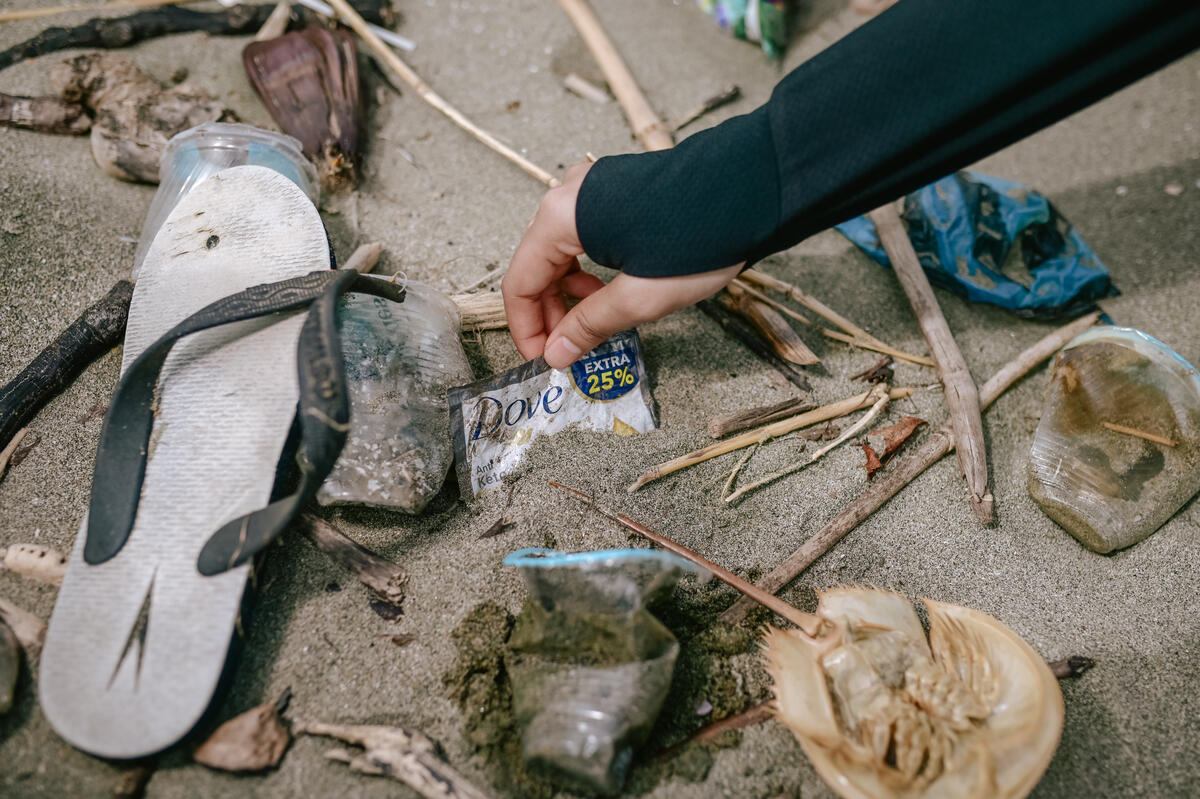Pretty much everyone agrees single use plastics pose a major threat to the planet and need to go. The idea of disposable plastics that are designed just to be thrown away runs completely counter to most people’s idea of a sustainable society and governments around the world have reacted with varying degrees of ambition and innovation.
There are already a wide range of bans or restrictions in place, with laws against single use plastic bags being the most common, but also moves against cutlery, straws, drinks containers and other ‘disposable’ plastic containers.
The end of sachets?
One particular offender that hasn’t received so much regulatory attention is sachets. These are the small plastic envelopes used to dispense shampoo, hand cream, sauces and numerous other liquid products that can be used in small quantities and seem to show up everywhere. The sachets themselves are manufactured with several layers of different materials and are totally unrecyclable. Sachets are a major menace that end up dumped in the environment, burned on bonfires, dumped in landfills and even used as fuel in cement kilns.
Sachets don’t have many friends – even a major user of sachets like Unilever calls them ‘evil’ – but no one seems to have done very much about it until now. This lack of attention might seem surprising given that there are clear alternatives – refillable systems – but thankfully things are beginning to change and at least two countries are already taking action – Indonesia and Sri Lanka
The Government of Sri Lanka decided to ban single use plastic packaging from 31 March 2021. Sachets containing less than 20g of product can no longer be sold on the island, although there are exceptions for food and medical products. Meanwhile, the government of Indonesia is working towards banning sachets with less than 50g of product by 2030 through a 2019 regulation by the Ministry of Environment and Forestry.
A headache for Unilever
These ambitious moves would effectively end the distribution of personal care products via sachets in the two countries and pose a major headache for companies that rely on them.
Unilever has tried to prevent regulatory action in the past. According to a Reuters report from 2022, the company has lobbied in Sri Lanka, India and the Philippines against action on sachets but with only limited success. The regulatory tide is flowing strongly against sachets and change seems inevitable.
And Unilever is a prime example of a business that is likely to be severely challenged by a sachet ban. The company has aggressively promoted disposable small portion packaging for more than a decade (its sachet production increased 40% from 2010 to 2023) and it relies on sachets to engage lower income customers in some key target markets like Indonesia, Philippines and India. If sachets start to be banned it will require the company to reconfigure its business model and rapidly develop more sustainable alternatives.
Unilever and sachets: in their own words
Unilever has acknowledged on numerous occasions that sachets are a major environmental problem:
In 2010, the company promised to ‘tackle sachet waste’ by 2015, but by 2020, Unilever admitted that it had failed, saying, ‘progress has been slower than we originally anticipated, but we are continuing to investigate the potential of new business models [...] to reduce our dependence on multi-layer sachets’.
In 2019, Unilever’s President for Global Food & Refreshments said, ‘we’re a big polluter,’ and referred to multi-layer plastic (which includes sachets) as ‘evil because you cannot recycle [them]’.
Paul Polman, who was CEO from 2009 to 2018, wrote that ‘despite our best efforts, and lord knows we tried, packaging this small and with such little value has proved impossible to collect at scale, let alone recycle,’ concluding, ‘we need to get rid of harmful sachets for good’.
In 2020, Alan Jope, the C E O after Polman, doubled down on this, saying that the company ‘had to get rid of them’.

Alternatives to sachets
Fortunately, there are alternative strategies available. Refillable systems that rely on customers bringing a re-usable container already have an established history in parts of south east Asia, for example the ‘Tingi’ culture in the Philippines, and can be re-established. However, the business costs of transition from disposable plastic to sustainable re-fillable systems will be a function of the time allowed to re-engineer the supply chain and early starters will be at an advantage.
Risks and opportunities
It seems inevitable that the era of the disposable plastic sachet will end within the decade but the consequences of that change for business will depend on how quickly companies react. Forward-thinking companies will be rapidly developing supply chains based on refillable containers right now, while the laggards will blindly run towards a regulatory cliff edge and face severe disruption and costs when they have to change their business model in a hurry.
Unilever is particularly vulnerable to these changes – its principal future growth markets are the same countries where sachet use is most prevalent. The only sensible business strategy is for Unilever to begin implementing its move away from sachets right now and get ahead of the regulatory curve – but will it actually do that or will internal inertia keep the company grid-locked until it’s legally compelled to act?



